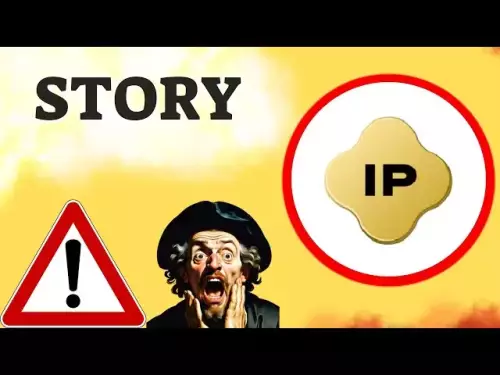 |
|
 |
|
 |
|
 |
|
 |
|
 |
|
 |
|
 |
|
 |
|
 |
|
 |
|
 |
|
 |
|
 |
|
 |
|
The recent announcement by the Department of Government Efficiency (DOGE) to implement a new approach to funding scientific research has sparked a heated debate within the scientific community.

The recent announcement by the Department of Government Efficiency (DOGE) to devise a new approach to funding scientific research has sparked a heated debate within the scientific community. As the DOGE's plans to introduce a new funding model that prioritizes cost-cutting and efficiency have come to light, the emphasis on cutting costs and optimizing efficiency may seem appealing at first glance. However, this focus disregards the fundamental principles and complexities of scientific research.
In this article, we will delve into the need for a new approach to funding scientific research, one that prioritizes investment in knowledge, lifesaving drugs, and technological capability over short-term budgetary concerns.
Investing in Scientific Research
Scientific research should be viewed as a crucial investment in the future of humanity. It drives innovation, improves healthcare, and enhances our understanding of the world around us. However, the current funding model is flawed, leading to a lack of investment in knowledge and a prioritization of short-term gains over long-term benefits. While the DOGE's approach to cutting costs and optimizing efficiency may seem like a solution to this problem, it is a misguided one.
Scientific research requires a long-term investment in knowledge and expertise, which cannot be achieved through short-term cost-cutting measures. To illustrate this point further, consider the example of Katalin Karikó, a Hungarian biochemist who developed the mRNA technology used in COVID-19 vaccines. Karikó's research was initially met with skepticism and rejection from the scientific community. Despite the setbacks and difficulties she encountered, Karikó persevered in her pursuit of this groundbreaking technology.
After facing difficulties securing funding and encountering skepticism from her peers, Karikó was eventually able to continue her research and made significant contributions to the development of mRNA vaccines. These vaccines have played a lifesaving role in combating the COVID-19 pandemic, showcasing the importance of investing in knowledge and innovation over short-term budgetary concerns.
Measuring Efficiency
Measuring efficiency in scientific research is a challenging endeavor, and the DOGE's approach to cutting costs and optimizing efficiency is oversimplified. Scientific research is not a procurement process that can be easily measured by focusing on the bottom line. Instead, it should be viewed as an investment portfolio that requires a long-term view and an evaluation of the overall impact and return on investment.
The DOGE's approach to measuring efficiency may lead to a lack of investment in knowledge and innovation, ultimately hindering the progress of scientific research. A more nuanced approach is needed, one that takes into account the returns on investment, including the development of lifesaving drugs, technological capability, and innovation.
By adopting this approach and evaluating the impact of scientific research on society, we can ensure that it is funded in a way that prioritizes knowledge and innovation over short-term budgetary concerns. This shift in focus is essential for continuing to advance scientific progress and reaping the benefits of groundbreaking discoveries.
Supporting Visionary Research
The importance of supporting visionary researchers like Katalin Karikó cannot be overstated. Their creativity and innovation are the driving forces behind groundbreaking discoveries and technological advancements. However, the DOGE's approach to cutting costs and optimizing efficiency may inadvertently stifle this creativity and innovation. A funding model that encourages innovation and risk-taking is needed, one that provides support for visionary researchers and their projects.
This support should not be limited to research that promises immediate practical applications or cost-cutting opportunities. Instead, it should encompass a broad range of scientific endeavors, including those that explore fundamental scientific questions or pursue highly speculative avenues of inquiry.
The example of the National Institutes of Health (NIH) and the National Science Foundation (NSF) demonstrates the importance of supporting visionary research. These organizations provide funding for scientific research that is often considered high-risk and high-reward. By investing in these types of projects, we can drive innovation and progress in scientific research, ultimately leading to breakthroughs that benefit society as a whole.
In contrast, the DOGE's approach to cutting costs and optimizing efficiency may lead to a prioritization of short-term gains over long-term benefits. This shift in focus could have devastating consequences for the future of scientific research and technological advancement. As we've seen with the COVID-19 pandemic, investing in knowledge and innovation pays off in unexpected and often lifesaving ways. We must not lose sight of this crucial fact as we strive to improve the efficiency and effectiveness of government programs.
Disclaimer:info@kdj.com
The information provided is not trading advice. kdj.com does not assume any responsibility for any investments made based on the information provided in this article. Cryptocurrencies are highly volatile and it is highly recommended that you invest with caution after thorough research!
If you believe that the content used on this website infringes your copyright, please contact us immediately (info@kdj.com) and we will delete it promptly.
























![[Pycoin] PI Coin -Shocking Listance of Pycoin?! 'Rebellion' This time ... Pay attention to #paikoin [Pycoin] PI Coin -Shocking Listance of Pycoin?! 'Rebellion' This time ... Pay attention to #paikoin](/uploads/2025/09/29/cryptocurrencies-news/videos/pycoin-pi-coin-shocking-listance-pycoin-rebellion-time-pay-attention-paikoin/68da82f23cec1_image_500_375.webp)





































